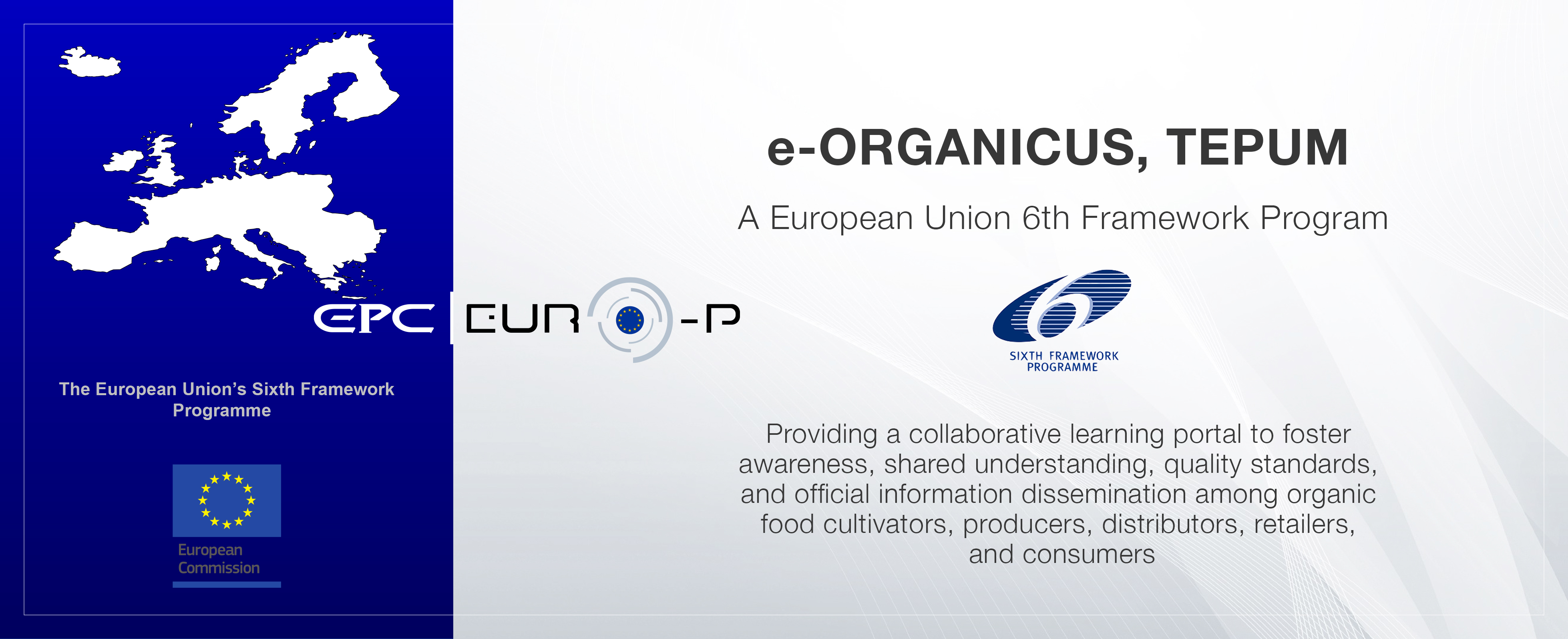2003-2007: Sixth Framework Program & e-content e-Organicus @Tepum
About
TEPUM Teknoloji is a leading technology firm consisting of three companies, Integra, Secura, and Sigma, specializing in system integration, security and network products, and e-business solutions, respectively. In 2003, Sigma initiated a new project named e-Organicus, aiming to create a distinctive digital platform that offers EU members valuable informational and educational resources for agricultural techniques.
Dr. Ayla Sevand, the founder of Tepum, reached out to European Projects Consultants, a firm co-founded by Dr. Asli Deniz Helvecioglu and me, to develop the project in alignment with EU norms and standards, leveraging EPC's expertise.
Implemented between 2002-2006, the Sixth Framework Program represented the EU's most extensive grant fund. It allocated up to 50% of R&D project funding to project partners through grants. Consortium management and coordination principles played a crucial role in realizing the project. The objectives of the Sixth Framework Program were to strengthen Europe's science and technology institutions by conducting high-quality research studies and creating maximum added value in international cooperation.I focused on Information Society projects, a subcategory within the Sixth Framework Program, with a collective fund of 3 billion 625 million euros allocated for diverse initiatives across Europe. e-Organicus perfectly aligned with the Information Society projects subcategory and served as an inspiring project for all involved.
The primary concept of the project was to establish a collaborative learning portal to foster awareness, shared understanding, quality standards, and official information dissemination among organic food cultivators, producers, distributors, retailers, and consumers.
The project aimed to provide informational and educational content to contribute to the development of a common European perception between different parties living in different cultural environments, to enhance the improvement of quality and safety standards in organic food production and distribution chains, and to provide various stakeholders with the information they need most in their business.
The e-Organicus Project established a comprehensive platform incorporating a semantic dictionary, reference library, inquiry-based online training, ready-to-print-and-use materials, and structured e-learning modules. This platform covered key aspects of the quality, safety, and ecological considerations of organic food and farming, positioning itself as a reference point for both the public and private sectors.
Aligned with the European Organic Farming Action Plan as proposed by the Copenhagen Declaration of the European Conference on "Organic Food and Farming - Towards Partnership and Action in Europe," the project focused on bolstering consumer trust, comprehension, perception, and recognition of organic products through generic promotion and production methods.
Upon defining the project's objectives, I initiated the creation of a knowledge base, knowledge packages, and functional requirements to establish the digital learning platform. Following our documentation efforts, I formed a robust consortium comprising international entities such as Institut Agronomique Mediterraneen de Montpellier (IAMM) from France, the Department of Economic Science and Marketing at the Mediterranean Agronomic Institute of Chania (MAICh) from Greece, the Food Engineering Department at the School of Chemical and Metallurgical Engineering, Istanbul Technical University (ITU) from Turkey, and many more, all under the leadership of Tepum. Finally, we concentrated on securing funding, concluding our process for one of Europe's most ambitious projects.
e-Organicus played a pivotal role in cultivating a shared European understanding of organic practices across diverse cultural backgrounds. Its primary aim was to elevate quality and safety standards within the organic food production and distribution chains, providing essential knowledge to farmers, producers, distributors, and consumers to enhance their practices.
Short Background of Dr. Ayla Sevand, Founder of Sigma, Tepum Dr. Ayla Sevand, Executive Manager, was born in 1947 in Istanbul, Turkey. She studied Economics at Marmara University, earned her Master’s Degree in Economics at the Middle East Technical University, and obtained her Ph.D. at the Faculty of Political Sciences of Ankara University. In 1982, she co-founded Tepum Teknoloji, establishing the first Computer-Based Education Center for high school students in Turkey. Dr. Sevand actively served as an executive until 1993, when she ventured into the restaurant business, opening six restaurants with different food and menu concepts between 1993 and 2000. During this period, she became involved in organic food. In 2000, she returned to Tepum Teknoloji as an active executive and continues to lead the company.


